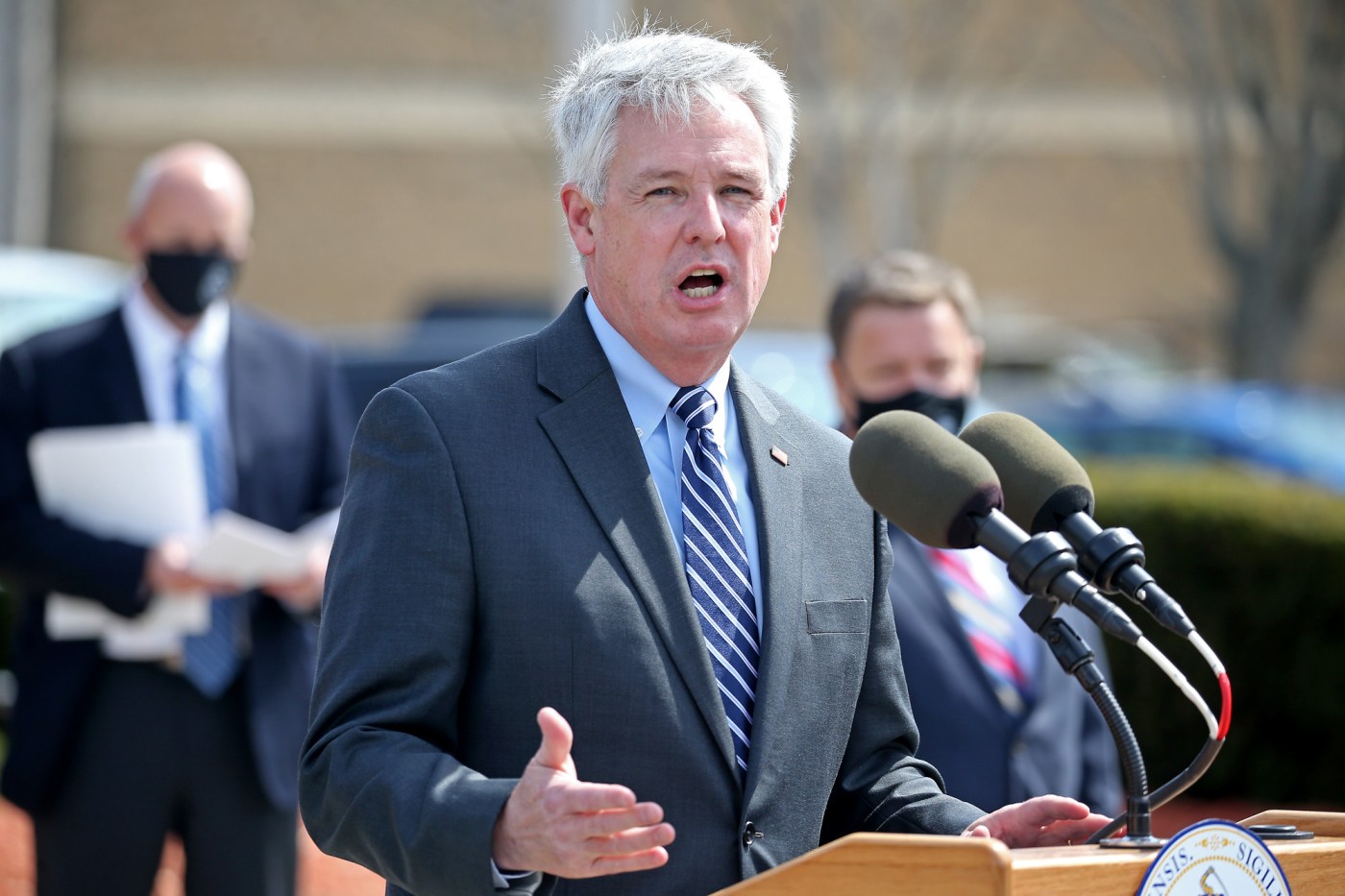
Massachusetts revenge porn bill scheduled for vote in Senate next week
Massachusetts senators plan to take up a bill next week that criminalizes disseminating nude photos of someone without their permission, a proposal that was a top priority of former Gov. Charlie Baker and received approval in the House earlier this year.
Massachusetts and South Carolina are the only states in the country that do not have a law on the books barring the nonconsensual distribution of someone’s sexually explicit photos or videos. Lawmakers here argue a statute is necessary to crack down on modern online harassment.
Sen. John Keenan, a Quincy Democrat, said lawmakers have heard from victims of revenge porn over the past two or three years, who have often said they did not know what to do when images of themselves ended up on the internet.
Many people, Keenan said, “contemplate suicide” because in order to address the situation, they would have to acknowledge that the images are real and exist online.
“They have found that when they have gone to law enforcement, law enforcement listens to them, understands, discusses options with them, but in many cases, conveys that there’s nothing that can be done because the specific act of sharing an image without consent is not illegal in Massachusetts,” Keenan told the Herald.
The bill that cleared the Senate Ways and Means Committee, which is often used as a clearing house for initiatives destined for a vote, this week largely hues to what House lawmakers passed in January.
As their House counterparts proposed, Senate Democrats want to develop and implement a “comprehensive” educational diversion program for adolescents on the consequences of sexting and posting explicit images or videos online.
But where the House charged the attorney general’s office with creating the program, the Senate looked to the Office of the Child Advocate to lead the efforts, a change Keenan said helps divert people away from the criminal justice system.
“The focus is more on education as opposed to involvement in the criminal justice system,” he said. “The attorney general does more law enforcement, criminal justice work and the Office of the Child Advocate does more educational outreach.”
A child who violates laws banning the possession or dissemination of explicit visual materials would be diverted into the education program under the Senate bill, which also boosts the fine for criminal harassment from $1,000 to $5,000.
Senators agreed to add “coercive control” to the state’s definition of abuse, a move House lawmakers argued would allow non-physical forms of abuse — financial, technological, or emotional — by a family or household member to qualify for an abuse prevention order.
The Senate in-part defines coercive control as a “a single act intended to threaten, intimidate, harass, isolate, control, coerce or compel compliance of a family or household member that causes the family or household member to reasonably fear physical harm or have a reduced sense of physical safety,” according to the bill text.
The bill creates a criminal offense for the unlawful distribution of “certain visual material” depicting another person who is nude, partially nude, or engaged in sexual conduct without their consent.
It also puts on the book a juvenile offense for similar crimes that is eligible for expungement, according to a bill summary.
Senators direct the Department of Elementary and Secondary Education to “encourage” school districts to put in place media literacy skills instruction and to use content from the educational diversion program when discussing sexting and posting sexually explicit images online.
Keenan said the legislation also addresses sexually explicit deep fakes, or computer-generated images of a person that are shared without a person’s consent. Keenan said there is no difference between sharing an actual image or a computer-generated one.
“It’s done for the same reason, in the same way, and it has the same impact. And people who see it, perceive it to be the individual who’s depicted,” he said.
House and Senate lawmakers could not agree to a compromise bill last session, which Keenan attributed to “a matter of timing.” This time around, both branches have time to iron out differences, he said.
“We have the benefit of time at this point that we didn’t have two years ago,” he said.
Victims of revenge porn have no legal help in Massachusetts. (AP Photo/Patrick Semansky)


